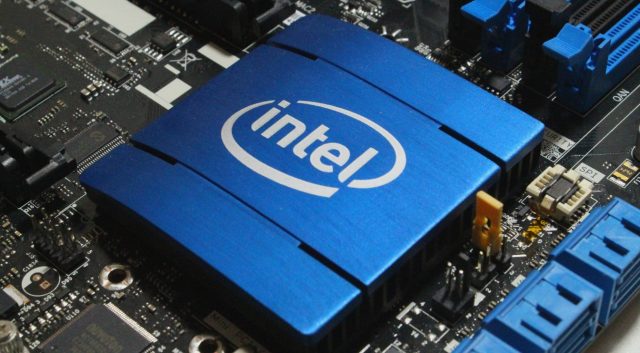 INFRA
INFRA
 INFRA
INFRA
 INFRA
INFRA
Intel Corp. is reportedly considering a number of acquisition possibilities, including Broadcom Ltd., as an apparent attempt to discourage Broadcom’s own hostile bid for Qualcomm Inc.
The Wall Street Journal late today reported that the Santa Clara, California-based chip giant is weighing the options because executives fear that a combined Broadcom and Qualcomm could create a dominant competitor, especially in the chips that power smartphones and other mobile devices.
The Journal said that if it looks like Broadcom would win its bid, Intel could make its own bid for Broadcom. It apparently has been considering the move since late last year, after Broadcom announced its Qualcomm bid in November. However, the odds of the latter deal have come down recently as the two sides jockey for position and U.S. regulators have begun to get involved.
Such a deal would cost Intel, which has a market capitalization of about $244 billion, more than Broadcom’s market cap of $104 billion. It remains a long shot, not only because it would be Intel’s biggest acquisition by far, but because of the difficulties of integrating the two companies’ broad product lines. Sources indicated that there’s no guarantee an Intel offer would happen, and one said it was unlikely.
If it happens, however, it would continue an accelerating stream of mergers and acquisitions in the semiconductor industry. The consolidation is driven not only by economies of scale, but the need for new kinds for chips for an expanding array of new devices and a need for new kinds of processing for artificial intelligence and machine learning applications such as image and speech recognition and self-driving cars.
Intel itself has been acquisitive lately as well, snapping up companies such as Altera and Mobileye in recent years for billions of dollars. What’s more, Broadcom’s products could both complement Intel’s and provide the solid presence in mobile chips that has largely escaped Intel, whose heritage is personal computers and whose business remains centered on PCs and computer servers.
“There is synergy with Intel for sure,” Patrick Moorhead, president and principal analyst at Moor Insights & Strategy, told SiliconANGLE. “First off, it would give Intel a much bigger footprint in mobile and IoT WiFi, Bluetooth and increased RF chip capabilities. Broadcom has a major data center networking play that fits nicely with Intel as well.”
Broadcom has steadily stepped up its pursuit of Qualcomm, most recently upping its bid to $121 billion early last month. Recently the companies have been dancing around each other, but it’s clear that Qualcomm has little desire to be acquired, especially since it’s trying to close its own $44 billion of NXP Semiconductors N.V.
Shareholder meetings for both companies were scheduled for earlier this week, which might have led to a resolution, since Broadcom is attempting to oust Qualcomm’s board and replace directors with its own nominees. But on Tuesday, the U.S. Committee on Foreign Investment said Broadcom’s acquisition of Qualcomm could pose a national security risk by leaving a void in the U.S. semiconductor industry that China could fill because Broadcom is based at least partly in Singapore.
The deal’s pushback on national security grounds is seen by some as trade posturing by the Trump administration against China. Qualcomm rescheduled its annual meeting for April 5 as a result of the CFIUS investigation.
For its part, Broadcom insisted in a statement Wednesday that it’s “in every important respect an American company.” It said it will maintain Qualcomm’s 5G research and development resources and it pledged to create a new $1.5 billion fund to “train and educate the next generation of engineers in the U.S.” to “ensure America’s lead in future wireless technology.”
Support our mission to keep content open and free by engaging with theCUBE community. Join theCUBE’s Alumni Trust Network, where technology leaders connect, share intelligence and create opportunities.
Founded by tech visionaries John Furrier and Dave Vellante, SiliconANGLE Media has built a dynamic ecosystem of industry-leading digital media brands that reach 15+ million elite tech professionals. Our new proprietary theCUBE AI Video Cloud is breaking ground in audience interaction, leveraging theCUBEai.com neural network to help technology companies make data-driven decisions and stay at the forefront of industry conversations.